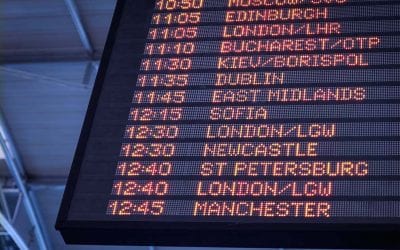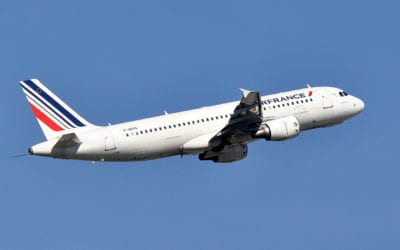Post fundamental passenger travel rights at airports. Don’t protect the airlines.

Displaying public service posters is not a big or complicated request. It doesn’t require any new legislation. The Secretary of Transportation could protect millions of passengers within a handful of months. The Transportation Secretary must choose to put the traveling public benefits in front of those of airlines.
These compensation rights only affect travelers in less than a handful of cases. Why is the Department of Transportation (DOT) keeping these rights hard to find? Why isn’t DOT taking advantage of laws already passed to let passengers know their rights?
DOT’s regulations come as three basic passenger travel rights. Each promises compensation to travelers.
- Whenever luggage is lost, damaged, or delayed, passengers are by regulation eligible for up to $3,800 per passenger in compensation for domestic flights and about $1,780 for international flights.
- When passengers are denied boarding on a flight with a reservation, they are eligible for up to $1,550 in cash.
- International passengers are eligible for flight delay compensation depending on the airline they are flying and their destination based on EU rules and the flight length.
In Europe, the government asked airports to put up posters in airports. In baggage carousel areas, posters explain passenger compensation when luggage is lost, delayed, or damaged. Some posters list compensation for delayed flights. Others describe the denied boarding compensation rules that come into play when travelers are “bumped” from overbooked flights.
The European-spearheaded passenger notification effort has been a rousing success.
Passenger rights posters are found in virtually every airport in Europe. They are displayed where they do the most good — in baggage carousel areas and boarding gates.
These kinds of public notifications informing passengers of basic passenger travel rights are lacking in the USA. Why are DOT’s regulations not publicized at airports?
- The DOT has not required airports to post these notices for passengers. However, the law passed by Congress allows the publication of DOT’s regulations, so passengers know the rules.
- Airports care more about airlines than they do about their passengers. Fliers fund airport operation through passenger facility charges, and that makes airport construction possible through municipal bonds.
- Airlines are reluctant to tell passengers their rights. They would rather bargain with ignorant travelers than face an informed passenger.
 There is no excuse.
There is no excuse.
The DOT and FAA have the power to require airports to display public service announcements. Why not include basic passenger travel rights? When the Secretary of Transportation deems notifications to be in the public interest, the law allows it. The ability to provide these notifications has been a part of every air travel appropriation bill for more than the past decade. DOT has ignored the notification every year since its inclusion in the funding bills.
DOT has the power to require that airlines notify passengers of their rights.
DOT mandates that airlines tell passengers about code-share flights on their Internet ticket purchase programs and boarding passes. Airlines should also tell fliers their passenger travel rights. It would keep the airlines honest and make DOT’s enforcement far easier. Hundreds of thousands of travelers’ eyes looking for compliance are far more effective than a dozen or so on an annual “airport inspection.”
A recent DOT report posted fines imposed during this past year. Virtually every airline checked for compliance with passenger notifications and accurate rule disclosure failed. It is time for a change.
 It is as simple as posting this two-sentence sample on every computer-generated boarding pass.
It is as simple as posting this two-sentence sample on every computer-generated boarding pass.
Ticket itineraries and computer-generated boarding passes could include the following.
Passengers can claim up to $3,800 compensation in cases of lost, damaged, or delayed checked baggage; up to $1,550 in cash for denied boarding compensation, and other compensation for delayed international flights. File complaints with DOT at http://airconsumer.dot.gov/escomplaint/ConsumerForm.cfm
Travelers United has a presentation showing that posters can be put up at airports. This information can also be shown on video displays. Airport display of rules costs the government almost nothing. Advertisers can subsidize the production of these customer service posters. Then, airports can display them as public service announcements throughout airports across the country.
Not informing passengers of their rights is simply unfair. The solutions are simple and championed by consumers and consumer advocates on both sides of the Atlantic. Only airlines stand to gain from uninformed passengers. It’s time to inform travelers, and DOT’s consumer advocate should lead the charge.
READ ALSO:
Learn latest DOT rules for improved consumer protection
How to file in small claims court for airline disputes
AA/JetBlue NEA changes passenger favorite to nothing special in the air

Charlie Leocha is the President of Travelers United. He has been working in Washington, DC, for the past 14 years with Congress, the Department of Transportation, and industry stakeholders on travel issues. He was the first consumer representative to the Advisory Committee for Aviation Consumer Protections appointed by the Secretary of Transportation from 2012 through 2018.





